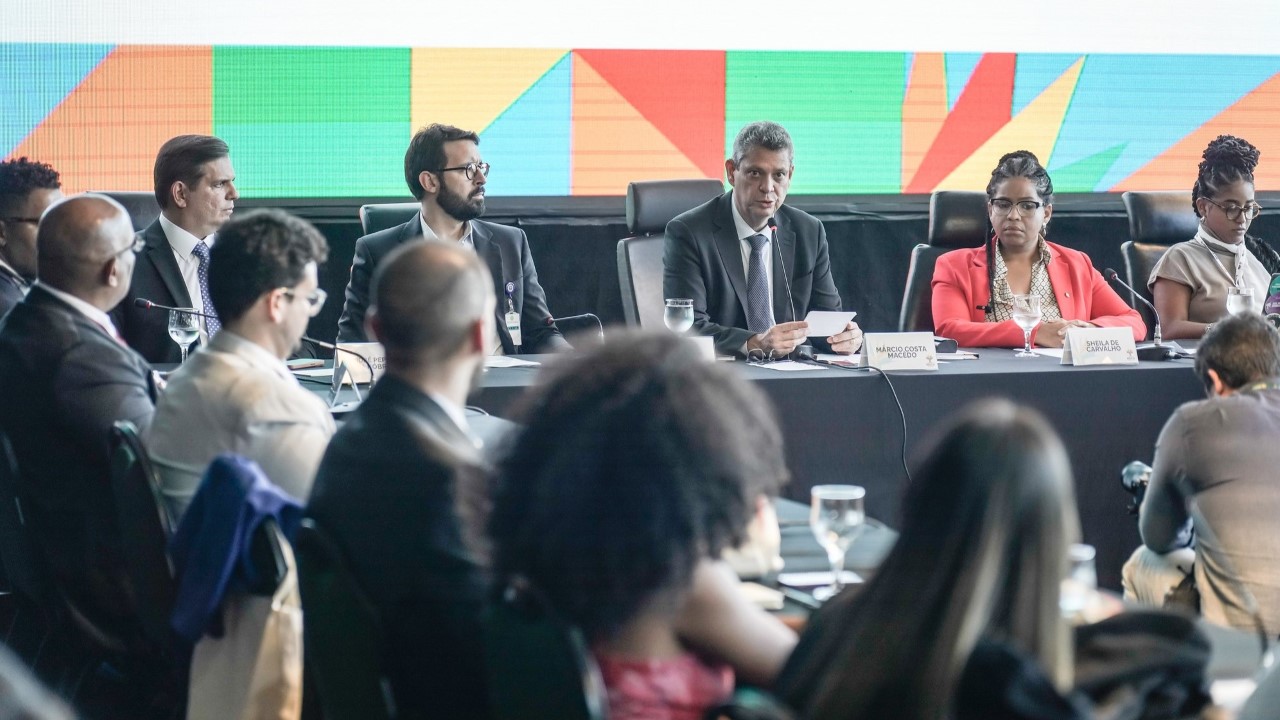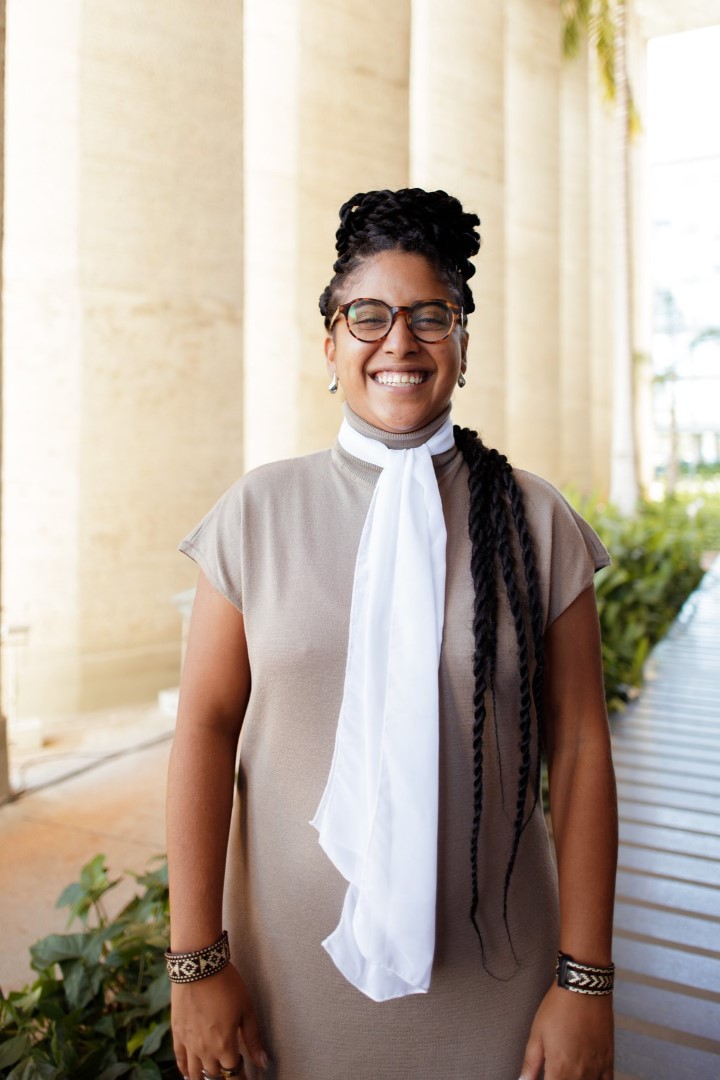BRICS Youth Discuss Just Energy Transition, Prepare Contribution to COP30
The 7th BRICS Youth Energy Summit unveils early findings from the 2025 Youth Energy Outlook, to be officially released at COP30 in November

By Mayara Souto / BRICS Brasil
BRICS youth convened on Monday, June 9, to discuss the just energy transition and deepen cooperation among countries of the Global South. Held at the Ministry of Justice, the 7th BRICS Youth Energy Summit brought together delegates to help shape the BRICS 2025 Youth Energy Outlook, which is set to be officially launched at COP30 in November.
"Each thematic session of the summit reflects a specific direction of Brasil’s BRICS presidency, and this is how we’re shaping expectations while anticipating energy outlooks. Another key outcome of the summit is the BRICS Youth Energy Cooperation Action Plan. We will be discussing it later today, after the session on how the bloc’s newest member states will integrate into our community, and how together we can build capacity so youth-led energy cooperation within BRICS can truly take off," explained Alexander Kormishin, President of the BRICS Youth Energy Agency (BRICS YEA).
The document is being structured around four central thematic pillars, aligned with the energy priorities of Brasil’s BRICS presidency:
- Sustainable Fuels for Climate Adaptation;
- Financing Energy Transitions and Ensuring Access to Critical Minerals for Clean Energy;
- Expanding Energy Access and Addressing Energy Poverty through Affordable Solutions; and
- Advancing Low-Carbon Energy Technologies.
The BRICS Youth Energy Agency (BRICS YEA) is a youth-led organization recognized internationally as a platform for cooperation among young people in the bloc, focusing on energy research and project development. BRICS YEA was established in 2015 through the Action Plan of the 1st BRICS Youth Summit. Marking its tenth anniversary this year, the group held its first meeting with participation from all new member states, each represented by young professionals from the energy sector.
"Young people are exchanging knowledge. One speaker brings up hydrogen or energy transition or even gender empowerment in the energy sector, and another builds on that—it’s a real exchange. We also want youth to bring a spirit of partnership to today’s discussions. New member states like Indonesia, Egypt, and the United Arab Emirates need to find allies among other BRICS countries. That’s what makes integration easier," Kormishin added.
Also attending the event, Márcio Macêdo, Minister at the Office of the Presidency, congratulated the youth on their work and underscored the importance of energy sustainability.
"BRICS countries represent about 40% of the global population and more than 25% of global GDP. We are major energy producers and consumers, directly influencing global markets—oil, gas, coal, and renewables alike. At the same time, we face shared challenges: energy transition, access to energy, and environmental sustainability. The energy diversity across BRICS nations creates opportunities for strategic complementarities. It strengthens our cooperation on innovation, sustainability, and energy security, and it reinforces our autonomy in relation to other geopolitical blocs. BRICS has the potential to lead the global energy transition—especially in the Global South—and our youth must play a central role in that process," he said.
Integration with COP30
The BRICS Youth Energy Outlook has been developed annually since 2018 by BRICS YEA, incorporating contributions from young professionals and researchers across the Global South. The document is traditionally submitted each year to BRICS energy ministers and presented at United Nations Climate Change Conferences (COPs).

This year, with Brasil holding the presidency of both BRICS and COP30, the discussion takes on even greater relevance. "Brasil’s dual presidency at BRICS and COP30 are interconnected, and we’ve aligned the research closely with Brasil’s priorities. Youth will face the consequences of today’s decisions in the future. The energy sector is the single largest source of carbon emissions. This is a critical area for sustainable development—and young people want a sustainable future, with lower emissions, less global warming, and better living conditions for themselves and their children, for generations to come. That’s what sustainable development is about," said Arsenii Kirgizov-Barskii, Vice President of BRICS YEA and Youth Programs Coordinator for COP29.
Also attending the summit was Marcele Oliveira, Youth Climate Champion for COP30. She emphasized the importance of youth engagement within BRICS and the need for coordinated positions to influence the upcoming climate summit, which will be held November 10–21 in Belém, in the Brazilian state of Pará.
"BRICS is a critical milestone on the road to COP30. We need our youth voices to arrive there fully aligned—our shared positions should help shape the conversations we want to advance, especially around adaptation, climate finance, and a just transition," said the climate activist.
"A just transition means more than just switching energy sources—it’s a shift in mindset. It’s about letting go of the idea that nature exists to serve us, because it doesn’t. We need it. And this is a conversation that can move forward meaningfully within BRICS—among countries in the Global South that understand that the change we want to see in the world must also come from our own solutions, from recognizing Indigenous knowledge, and from valuing climate innovations born on the peripheries of the world," she added.
English version by: Judas Tadeu de Azevedo Neto (POET/UFC)
Proofreading by: Kelvis Santiago do Nascimento (POET/UFC)